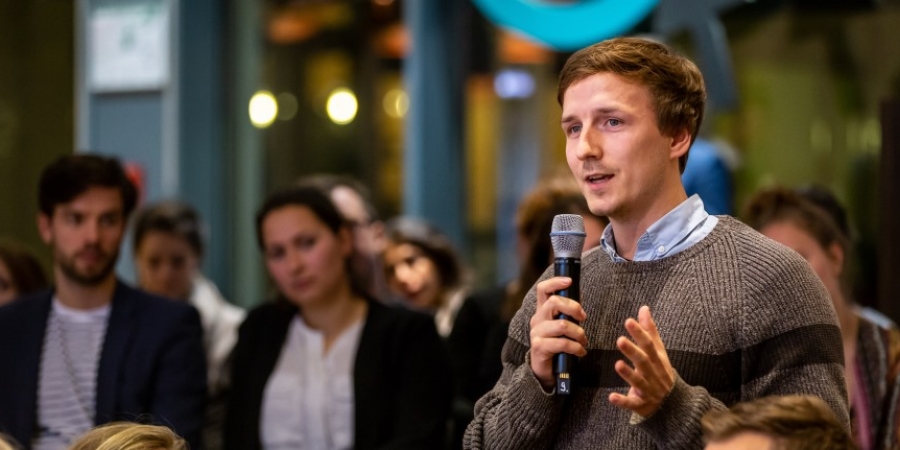20 students, 14 driving forcers, 5 days, 2 cities
The 3rd Autumn Academy was about business ethics and the social impact of digitalization.
To whom do we confide our health data? How do we organize responsibility considering automated driving? Which opportunities and risks stem from automated face recognition?
These were just some of the questions which were discussed by participants and driving forces during the one-week Autumn Academy in Wittenberg. For the third time, the WCGE had offered the format, and 20 students from 13 universities and 14 disciplines qualified themselves to participate in a selection process. The Academy was financed by the Heinz und Heide Dürr foundation.
Concepts and methods of economic and business ethics were imparted by the professors Philipp Schreck, Andreas Suchanek and Ingo Pies. Dr. Martin von Broock introduced the WCGE and built a bridge between business ethics and the theme of digitalization. This laid the foundation for the dialogue with the practice: Dr. Stephan Hans from the SDA SE, an IT – consultancy, debated the opportunities and challenges of digital processes in the healthcare sector. Dr. Martin Stadler, head of division for insurance law and fundamental issues at the alliance SE, specified that the responsibility for automated driving can be organized. Vice President Michael Jones of the Berlin startup EyeEm showed possible applications for automatic face recognition. Friederike Fröhlich from the WCGE discussed the ethical challenges of algorithmic decision-making processes. Part of the Autumn Academy also involved participation in the discussion “the world changers – generation Y between success and ethics” in the Telefónica Basecamp in Berlin with the entrepreneur Heinz Dürr, the Flixbus founder Daniel Krauss and the author Katharina de Biasi, who is also alumna of the Doctoral Program "Ethics and Responsible Leadership in Business" at the WCGE.
In their assessment, the participants emphasized especially the combination of scientific and practical impulses as well as the variety of methods and formats. Positive feedback also came from the lectures: In the dedicated discussions with the participants, they also received new food for thought.

